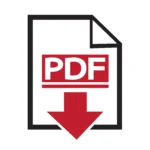AUTHOR:
Magdalena Białobłocka
ABSTRACT:
The article is devoted to the comparison of the concepts of technocracy/technocratic governance and democracy, as well as checking how democratic a nature of technocratic governance is. It was argued that technocratic governance is in opposition to democracy, but rather borders with autocracy (non-democracy) and found out that technocratic governance leads to weakening the procedures of delegation of authority and accountability between voters and parties, parties and governments, increasing external pressure on politicians and weakening ideological patterns of political process. The researcher confirmed that technocratic governments lack political competition, participation of citizens as key “principals” of democratic political regimes and political legitimacy. However, it was conceptualized that technocratic governance has both positive and negative moments through the prism of democracy: positive moments are short-term and negative moments are long-term. The author determined that the formation of technocratic governments in the long-term/repetitive perspective is not democratic, because it leads to patrimonialism of various inter-institutional relations. On the other hand, it was found that the more democratic is a political system, the greater is the likelihood that technocratic governments and technocratic governance will be temporary.
DOWNLOAD FULL ARTICLE:

